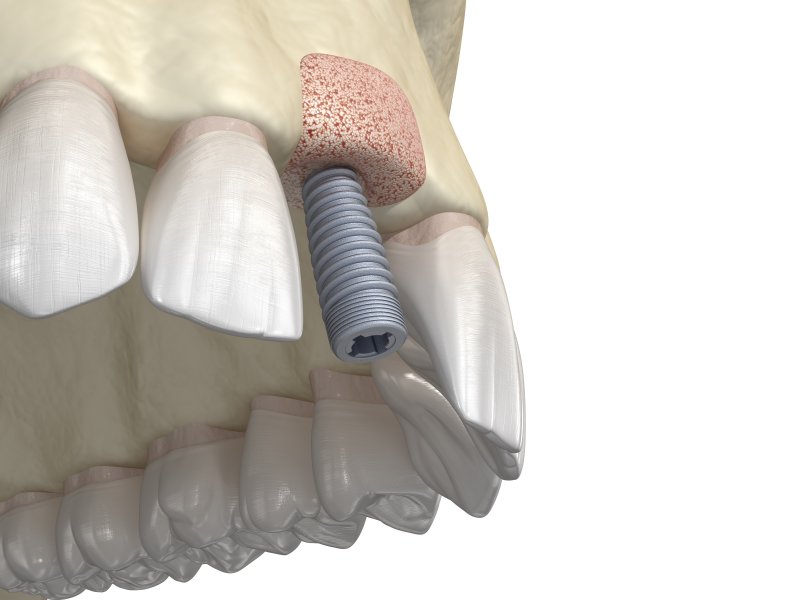Why Might You Need a Bone Graft Before Your Implant?
September 17, 2021

Tooth loss is a common issue that affects millions of Americans throughout the country. Fortunately, losing a tooth doesn’t mean that you have to go the rest of your life with an unsightly gap in your smile. Dental implants are a preferred tooth replacement option because they have so many benefits that you can’t get anywhere else. However, not all patients are ready to get their implants right away. Some need to undergo a bone graft beforehand. Read on to learn why this is the case.
Why Does Missing Teeth Lead to Bone Loss?
The root of your tooth stimulates your jaw whenever you chew, therefore keeping it strong and healthy. However, when you lose teeth, your jawbone isn’t receiving this same stimulation. Over time, the bone tissue will be reabsorbed by the body. As time goes on, the more the bone deteriorates. This can cause difficulties when it comes to eating and speaking. It can even affect the future alignment of your surrounding teeth.
What Is Bone Grafting?
A bone graft works by transplanting bone tissue into the jaw. This bone can come from another part of the mouth, a different part of the body, or by a human or animal donor. Sometimes, synthetic material is also used. Once this new piece of bone is placed in the correct area, it will seal itself to the old bone tissue in the areas that you need it. This is a relatively minor procedure, and patients are generally sedated during the process. Most patients who receive bone grafts report that the experience was pain-free.
Why Do You Need to Have a Bone Graft?
Needing a bone graft before dental implants is fairly common. This technique is required when a patient doesn’t have a sufficient amount of healthy bone tissue in their mouth that is capable of supporting dental implants. Many times, this is caused by previous tooth loss, but it can also be a result of developmental defects, periodontal disease, and facial injuries.
What Will Happen After Your Bone Graft?
After the bone graft procedure is complete, your dentist will prescribe you antibiotics to prevent infection. If necessary, you may also be given pain medication for the recovery period, but many patients are able to do well afterwards with just the antibiotics. Once the bone graft fuses with the natural bone tissue in the mouth, your dentist will be able to place your implants. Depending on your unique case, this could take anywhere from three months to a year.
A bone graft may not sound like the most pleasant experience in the world, but it’s actually very common before dental implant placement surgery. During your initial consultation, you’ll find out if one is right for you.
About the Author
Dr. Jean-Marie Biebuyk is an experienced dentist who was been working in the field for over three decades. He earned his Doctor of Dental Surgery degree from the University of Pennsylvania before completing the prestigious periodontal program at the Tufts School of Dental Medicine. He has placed over 1,000 dental implants and now specializes in the conservative treatment of gum disease, dental implants, and reconstructive or cosmetic periodontal procedures. Currently, he is involved with numerous professional organizations, including the Massachusetts Dental Society, the American Academy of Dentistry, and the American Academy of Periodontology. For more information on bone grafts or to schedule an appointment at his office in Framingham, visit his website or call (508) 875-0900.
No Comments
No comments yet.
RSS feed for comments on this post.
Sorry, the comment form is closed at this time.


